JANUARY 2018
Speaker's Corner
"Anaerobic Digestion as a Business Opportunity for Tribal Communities"
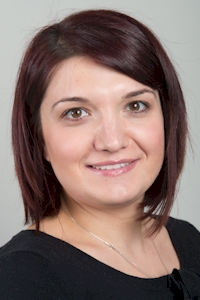
As part of the Project Feasibility, Feedstock Analyses track, of the recent BioCycle Renewable Energy From Organics Recycling Conference, in Portland, OR, GBB Senior Consultant Ljupka Arsova talked about anaerobic digestion for Tribal Communities and the status of a current project for the Mesa Grande Band of Mission Indians, near San Diego, CA..
Click here to view a PDF of the presentation >
Upcoming Events
GBB will be present at the following industry events. We look forward to seeing you there!
Arizona Tribal Energy Association Meeting
Phoenix, AZ
January 25, 2018
Steve Simmons and Ljupka Arsova, Speakers
"
Waste-to-Energy Technology / Tribal Project Overview"
SWANApalooza
Denver, CO
March 5-7, 2018
Reservation Economic Summit
Las Vegas, NV
March 5-8, 2018
Virginia Recycling Association / SWANA Old Dominion Joint Solid Waste & Recycling Conference
Virginia Beach, VA
May 7-9, 2018
Chris Lund, P.E., PSS, Speaker
"Converting Waste Materials into Marketable Products"
North American Waste-to-Energy Conference
Lancaster, PA
May 14-16, 2018
Harvey Gershman, Speaker
"Impact of China’s National Sword on Recycling in the U.S. and the Implications for Waste-to-Energy"
Michigan Recycling Coalition Conference
Kalamazoo, MI
May 14-17, 2018
NY Federation of Solid Waste & Recycling Conference
Lake George, NY
May 20-23, 2018
Jennifer Porter, Speaker
"Do’s and Don’ts for Bidding on Collection Contracts for Small Haulers"
WASTECON
Nashville, TN
August 22-25, 2018
GBB, Exhibitor (Booth #428)
MRF & Recycling Plant Operations Forum
Chicago, IL
October 16, 2018
Visit the conference / tradeshow section of our Website for an updated list!
Social Media
We invite you to follow, and like, GBB on LinkedIn, Twitter, and Facebook to automatically get the latest news and info!
  
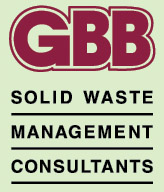
2010 Corporate Ridge
Suite 510
McLean, VA 22102
703.573.5800
Fax: 703.698.1306
www.gbbinc.com
|
Food for Thought: Organic Waste Processing Industry
By Ljupka Arsova, GBB Senior Consultant
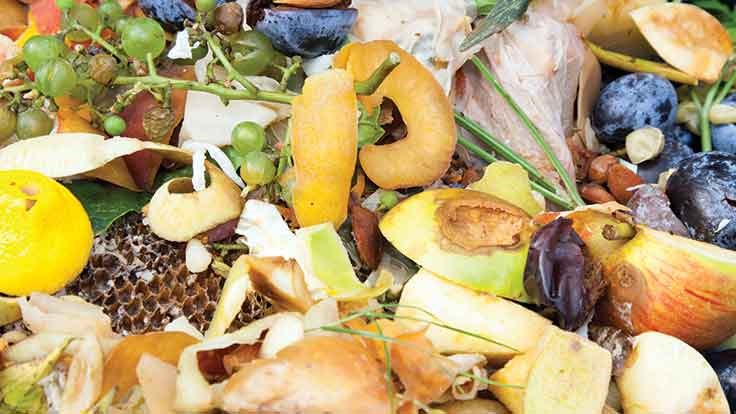 Food waste has been at the top of the agenda of many cities and counties around the US in the past few years. As such, there’s an increasing number of initiatives to raise awareness about the amounts being generated; develop strategies to prevent its generation; and develop source separation programs, collection systems and new processing capacity for this kind of materials. In October, I had the opportunity to attend, and present at, the BioCycle Renewable Energy from Organics Recycling (REFOR) Conference, which is affiliated with the American Biogas Council. The conference brings together professionals from public-sector authorities, technology and project developers, consulting firms, and financing companies. It’s a great opportunity to learn from key players in the organic waste processing industry and stay current with the latest industry news. Food waste has been at the top of the agenda of many cities and counties around the US in the past few years. As such, there’s an increasing number of initiatives to raise awareness about the amounts being generated; develop strategies to prevent its generation; and develop source separation programs, collection systems and new processing capacity for this kind of materials. In October, I had the opportunity to attend, and present at, the BioCycle Renewable Energy from Organics Recycling (REFOR) Conference, which is affiliated with the American Biogas Council. The conference brings together professionals from public-sector authorities, technology and project developers, consulting firms, and financing companies. It’s a great opportunity to learn from key players in the organic waste processing industry and stay current with the latest industry news.
Key takeaways of the conference, that should be of interest to those interested in food waste processing, include:
- Operators of wastewater treatment plants are more than ever interested in accepting organic waste to process with their anaerobic digestion (AD) units. The two most important benefits of doing so are that it allows them to produce enough biogas and electricity to be self-sustaining and operate off the grid, and it saves the local community millions of dollars from not having to build brand-new AD processing capacity.
- The trend of experienced European developers coming to the US is continuing and will make the development of AD facilities less expensive and more reliable as they bring their valuable development/operation expertise acquired in the European Union AD market. This is significant because many AD facilities built in the last 5 years in the US have changed ownership as the initial developers/owners could not financially survive the expensive challenges faced during the development and operations phases of the facilities.
- Investors are very comfortable financing AD projects and have funds to invest, but they are expecting certain contractual arrangement to be in place before they can close financing on a project. Some of the investors are calling for standardization of contracts because they believe it will make it easier for all the parties involved in a project’s development.
- More public-sector authorities are expressing interest in developing AD facilities and implementing organic waste management systems.
- The American Biogas Council launched the Digestate Standard Testing and Certification Program, a voluntary industry-led third-party verification standard for the digestate product of AD facilities. Information can be found at www.digestate.org.
- Renewable Identification Numbers (RINs) are credits from generating renewable fuels that are used for compliance under the EPA’s Renewable Fuel Standard (RFS) program. Currently, the RINs’ value is at a record high of $38/MMBTU (101 For RINs - Paul Green, BioCycle Magazine, November 2017), over 12 times the value of natural gas, making the economics of AD facilities much better when LNG/CNG is the final product instead of electricity. Unfortunately, there is policy uncertainty associated with this since the RFS program is only authorized until 2022, and the renewable fuel mandate beyond that is unknown at this point.
Although so many positive actions and initiatives supporting the organic waste processing industry are happening, we have yet to see it in full bloom. Successfully developing an AD project, or implementing a program for organic waste management, requires long-term confidence and contracts in place – both of which are very challenging at this moment in the US. Nevertheless, there are AD facilities currently under construction/development, the industry is moving forward, and we are all working hard together to make it bigger and stronger.
Director of Kent County, MI Department of Public Works Testifies before House Subcommittee on PURPA
In early September, Kent County Michigan’s Public Works Director, Dar Baas, testified before the Energy subcommittee of the Energy and Commerce committee in the US House of Representatives. The goal of the hearing was to explore whether or not reforms to the Public Utilities Regulatory Policies Act of 1978 (PURPA) are appropriate to respond to a changing energy generation sector. Mr. Baas gave testimony detailing the necessity of Waste-to-Energy (WTE) facilities and more specifically, the need for PURPA to be adjusted to prevent publicly owned and operated WTE facilities from shuttering. He attributes the increase of facilities shutting down to be due to utilities only agreeing to impractical contract lengths or disregarding the value and offering to buy power from WTE facilities at a loss.
During his testimony, he illustrated for the committee how beneficial WTE facilities can be in the U.S.: "The 76 WTE plants located across the nation have a baseload renewable electricity capacity of 2547 MW and generate over 14 billion kWh of electricity per year, avoiding nearly 30 million tons of greenhouse gas. Approximately half these facilities are owned by local governments." Kent County's own WTE plant produced 100,943,000 KWh of electricity and diverted 182,000 tons of waste from the County’s landfill in 2016.
GBB is assisting Kent County in developing the master plan for its Resource Park that will house facilities to recover discarded materials, to reuse and recycle the recovered material, and to convert non-recyclable material into intermediate products or to recover the energy value of those discards. This master plan will help to create clear blueprints about how Kent County will move forward and adjust to regulatory and market changes.
Click the image to see the 4-minute testimony of Mr. Baas:
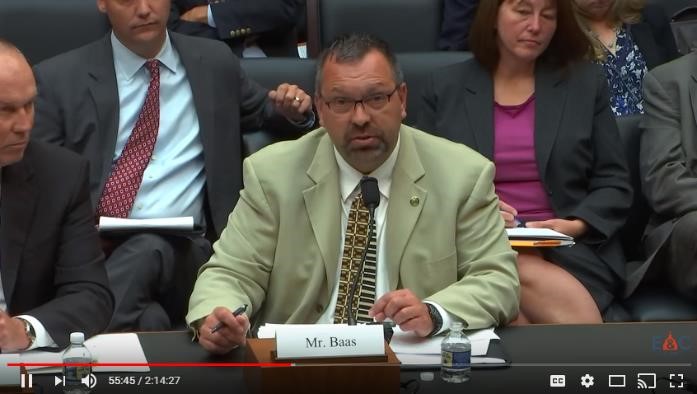
First Woman on Guam Solid Waste Authority's Collection Crew
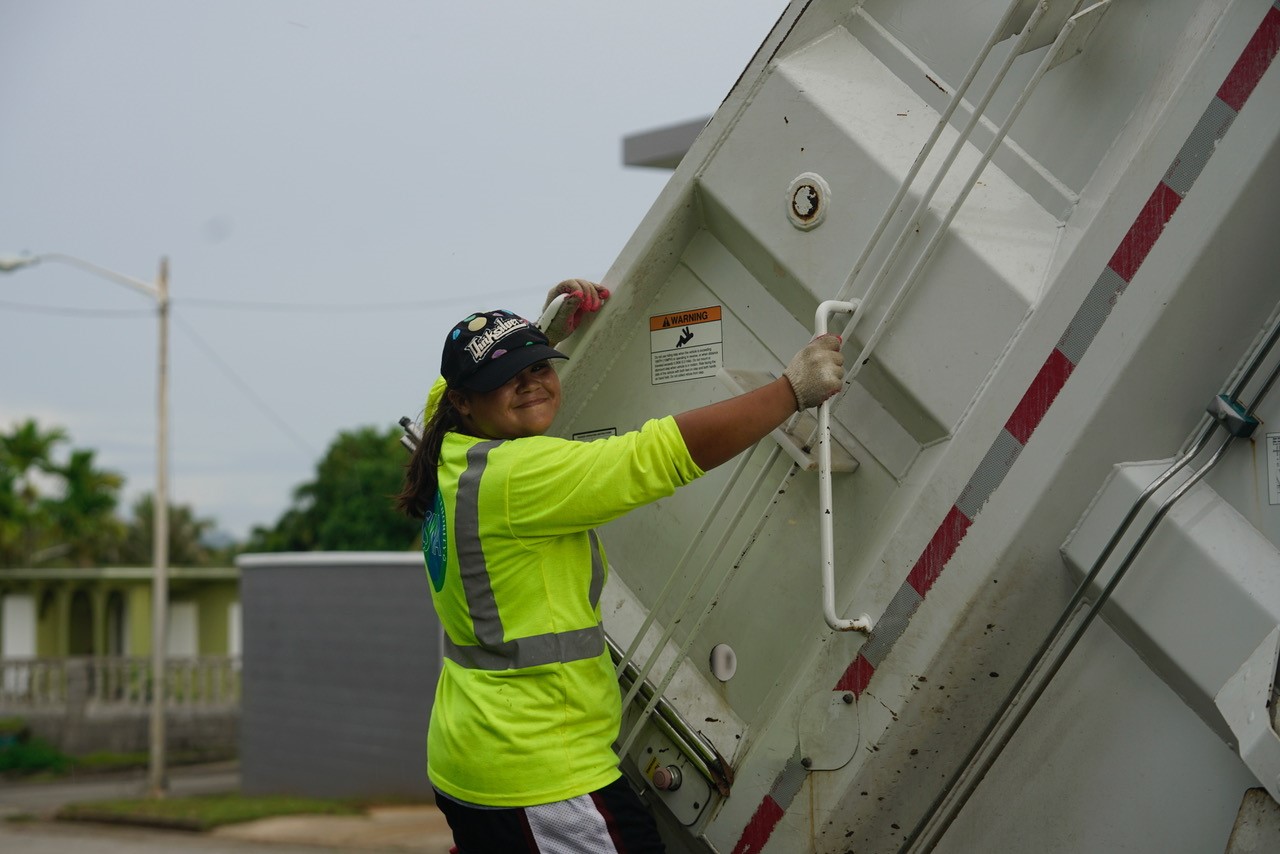 Nebi Manglona, a 19-year-old young woman from Dededo, in Guam, is the only female sanitation working at the Guam Solid Waste Authority. Working with the collection crew since August, she is noted for her speed, agility, work ethic and overall efficiency. Early this fall, she was featured in a Guam Daily Post article. Nebi Manglona, a 19-year-old young woman from Dededo, in Guam, is the only female sanitation working at the Guam Solid Waste Authority. Working with the collection crew since August, she is noted for her speed, agility, work ethic and overall efficiency. Early this fall, she was featured in a Guam Daily Post article.
Reading List
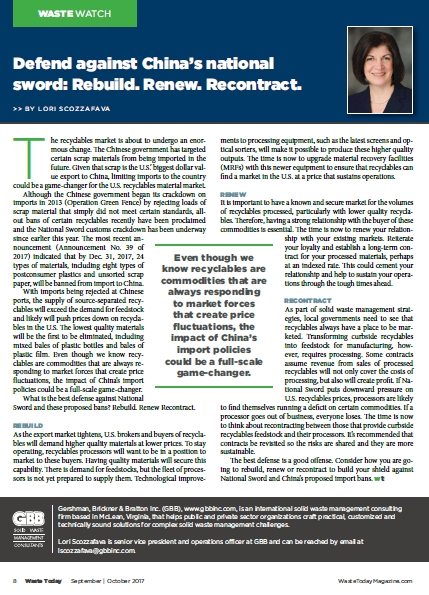 As thought leaders, GBB consultants regularly contribute articles to leading industry publications, sharing insight and information on important topics. Recently published articles include: As thought leaders, GBB consultants regularly contribute articles to leading industry publications, sharing insight and information on important topics. Recently published articles include:
Is the U.S. Ready for a Paradigm Shift in Solid Waste Management?
Steve Simmons, GBB Senior Vice President
Waste Today Magazine - November / December 2017
Defend Against China’s National Sword: Rebuild. Renew. Recontract
Lori Scozzafava, GBB Senior Vice President, Operations Officer
Waste Today Magazine - September / October 2017
Links to all recently published GBB articles are available on the website. |



